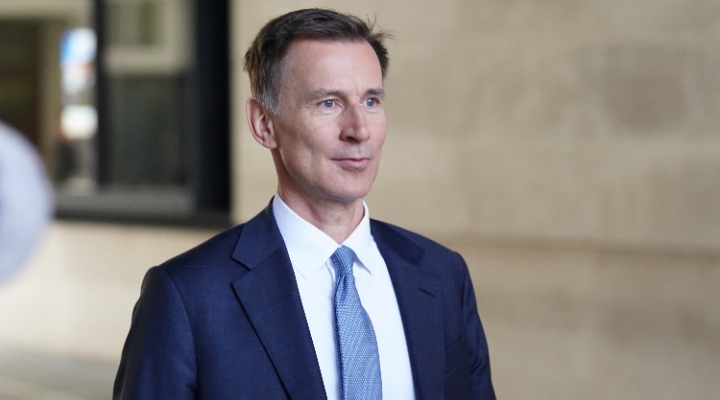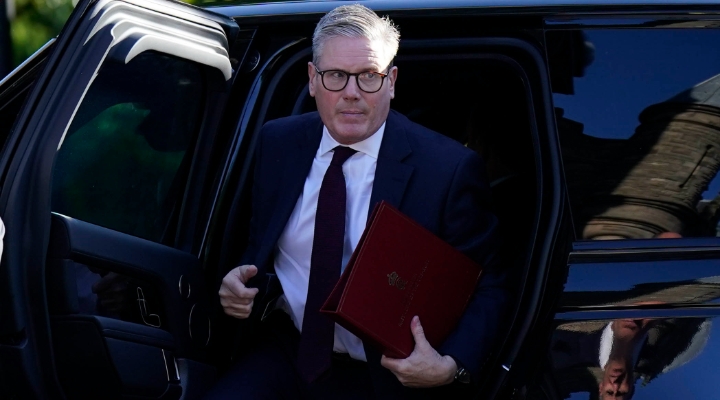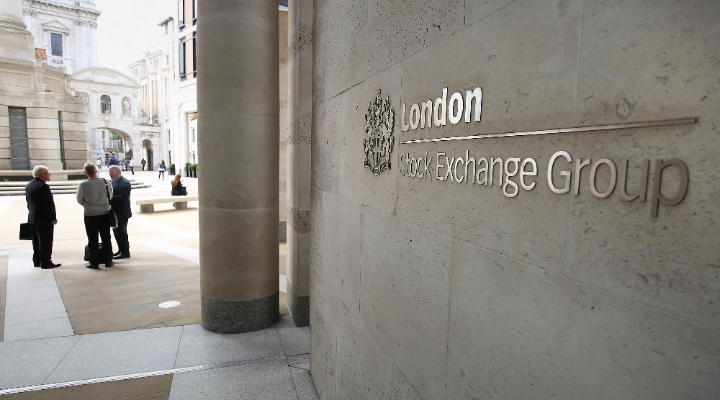
It was a masterclass in politics. But politics is theater, and the theater is a show.
On the optics, Jeremy Hunt needed to look confident, so there were jokes aplenty: about the shadow chancellor's book plagiarism row, or – funnily enough – other politicians called Jeremy who wanted to be prime minister. There was even a cringe opener about Hunt's own wife, about whom his remarks have previously not exactly gone well.
There were giveaways. The largest business tax cut in history through the full expensing system. The self-employed recognised for their contribution to the economy during the pandemic with a paltry Class II National Insurance giveaway. And a big National Insurance employee contribution rate cut targeted at public sector workers, many of whom either struggle to make ends meet or are just frankly fed up – or both. Emergency legislation to bring a faster pay bump in January rather than April. As one commentator has already said, the electioneering was obvious. The loudest silence on inheritance tax, clearly deemed too politically toxic to touch in a cost of living crisis.
But there was plenty of bad news in the detail. The UK avoids a recession this year, and will grow by 0.7 in 2024, but the projections were once more wrong, and not in a good way. The Office for Budget Responsibly had originally predicted 2024 growth would be 1.8%; short-term optimism once more eaten alive by reality.
And then inflation. It will now take far longer than the OBR originally predicted for the BoE to hit its 2% target. 2025 – the newly-revised finish line – feels like a long way away. As governor Andrew Bailey mulls today's measures from his office on Threadneedle Street, he will be examining just how many of the government’s 110 Autumn Statement measures are in fact inflationary.
The proposed changes to pensions and ISAs will surely not be among them, but, as pension policy enthusiasts pile in to celebrate another consumer choice revolution, it appears nobody is there to tell them this is yet more tinkering that will confuse the heck out of people relying on a nudge to get them to the starting line of retirement saving. Because it is only the starting line. Consumer choice? Translation: "you're on you're own!"
Market My Words
If you read any political memoir you’ll note just how concerned ministers and their departments are about markets. As the former Liberal Democrat chief secretary David Laws wrote of his (short-lived) arrival in government in 2010, concern for the markets was one of the major initial drivers of austerity, a policy that even threatened to remove the government's ministerial car scheme.
After the disaster of Liz Truss's premiership, ministers could now perhaps be forgiven for focusing heavily on market sentiment once more, but it's not the only barometer of confidence in the UK economy. So to Bailey himself, who has just told the Treasury Select Committee he is concerned markets are underestimating the inflationary threat. Another is voters themselves, who head into Christmas feeling worried. Go into any pub and ask them.
As for the sickest and most vulnerable, this Autumn Statement will leave a particularly nasty taste. A revision to the benefits rule will now place work-search and "WFH" targets on the heads of those who have previously been spared them. Jeremy Hunt presented this status quo as a waste of opportunity and ambition, but to someone with COPD, ME, or long-Covid extra pressure will feel like a petty personal attack. Patients will ask "how am I supposed to pay for an adjustable desk?" or perhaps even "who wants to employ me in the first place?" Benefits may overall be rising by 6.7% in response to the now-4.6% inflationary threat, but it may not feel like Christmas for those watching their bank accounts from a wheelchair.
This is not to say the productivity of the long-term sick – and those severely affected by health problems then compounded by Covid-19 – is not a concern. But the government can justifiably be accused of scrambling to put its house in order long after it had the opportunity to do so. All that comes down to the NHS, this year hamstrung by strikes and cascading crises. To declare an interest: my most recent surgery was rescheduled four times, on one occasion when my surgeon realised there was simply no consultant anaesthetist at the 11th hour. One worries for those in need of the Cancer Guarantee, or those experiencing serious mental health problems at the door of accident & emergency. They are the very patients overstretched police forces up and down the UK are now washing their hands of. Fair enough, but duty of care cannot be a hospital pass. The eternal cry from hospital departments: we need more staff.
Stating The Obvious
More staff means a bigger state, so what of the s-word?
It's worth noting the chancellor's obvious efforts to cut the size of the state today, long felt to be too large by the right of his Party. It may this time be funded by slightly lower government borrowing, but, as fiscal drag raises the tax burden, it's not something voters will necessarily notice. And within the state itself, civil servants will be under fresh pressure to work harder with fewer resources – a policy highlighted today in praise of John Glen, the former City minister and MP for Salisbury. Even after the Dominic Raab scandal in May, civil servants are still by no means the most beleaguered workforce in the UK, but they are another barometer of confidence in "the system". Some enjoy working for their ministerial masters. None, in my experience, proclaims a confidence in politics itself.
So, a still-stagnant economy in the medium- to long-term, and a dramatic policy playbook that will – to some – turn Jeremy Hunt from careful steward of the Treasury to pantomime villain. Next year, when the UK goes to the polls, we'll see how warm the applause truly is.
Ollie Smith is UK Editor at Morningstar. The views contained above are his own




























